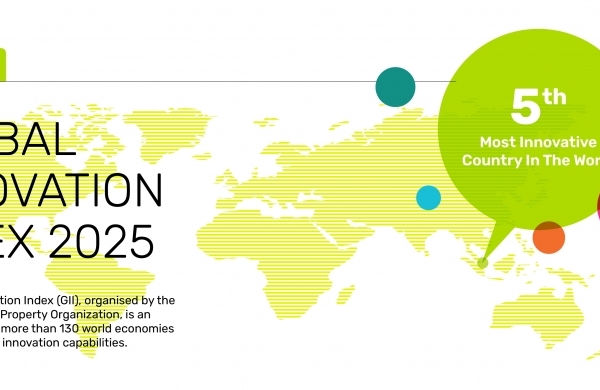Did not receive verification mail? Please confirm whether the mailbox is correct or not Re send mail

IPR Daily
- 2024-01-31 15:22:59
UK invalidates two patents apiece for Abbott and Dexcom in vast CGM battle
Medical device companies Dexcom and Abbott are currently going head-to-head over multiple patents covering their respective glucose monitoring devices, known as continuous glucose monitoring or CGMs. The dispute spans several countries, among them the UK, Spain, and Germany, as well as parallel proceedings at the UPC and the EPO.
According to estimates by the International Diabetes Federation, almost 540 million people globally live with diabetes. As such, the market is vast; the value of the connected medical devices involved in glucose monitoring is only set to grow. Initially, the UK proceedings began in 2021 and involved twelve patents, with a thirteenth patent added to proceedings in early 2022. Altogether, the parties have raised 17 patents in the UK.
Next round in London
In the next round of patent litigation in the UK, the High Court has found four patents – two belonging to each party – invalid (case IDs: HP-2021-000025 & HP-2021-000026). Abbott’s EP (UK) 2 146 627 and EP (UK) 2 476 223 cover a “method and apparatus for providing data processing and control in medical communication system” and “methods and articles of manufacture for hosting a safety critical application on an uncontrolled data processing device”, respectively. Dexcom owns EP (UK) 2 914 159 and EP (UK) 3 782 539, which cover “systems and methods for providing sensitive and specific alarms.”
A fifth patent, EP 2 146 625, was originally also at issue, although Abbott withdrew its allegations of infringement prior to the trial, although a revocation action concerning the patent is still pending in Germany. The current UK judgment, which is listed as being Trial A, was the second to have a judgment handed down. In December 2023, the High Court handed down a judgment in Trial C, whereby Dexcom defeated Abbott in its infringement action over EP 2 549 918. Parties await a judgment in Trial B, which concerned Abbott patent EP 044.
The court will hear two more trials, D and E, in November 2024 and January 2025, respectively. Trial D concerns Dexcom patent EP 3 928 688 and Abbott patents EP 3 370 045 and EP 3 766 408. Trial E concerns Dexcom patent EP 2 939 158. All four patents are also currently in litigation in Germany.
Abbott and Dexcom argue infringement
In the Trial A proceedings, Abbott contended that Dexcom’s G6, G7 and D1 systems infringe EP 627 and EP 223, while Dexcom counterclaimed for invalidity – in both cases based on lack of novelty and/or inventive step and insufficiency, and with regard to EP 627 also for lack of patentable subject matter.
Likewise, Dexcom contended that Abbott’s FSL2 and FSL3 systems infringe EP 159, while Abbott counterclaimed for lack of novelty, lack of inventive step and insufficiency. Regarding EP 539, Dexcom accepted the patent as invalid as granted and applied to amend the patent unconditionally on the grounds of clarity and extension of scope. Should the court have accepted the amendments, EP 539 would become materially the same as EP 159.
Patents already anticipated
The court found that a piece of prior art, Gejdos, anticipatd Abbott’s EP 223, although it found the patent not obvious over Lebel. Dexcom’s so-called Gillette arguments – which, according to an explanation on patent attorney firm Maucher Jenkins’ website, “requires the defendant to demonstrate that the alleged infringing device would have lacked novelty or inventive step at the priority date of the patent, under a normal interpretation of the claims” – failed.
Furthermore, the court also found that Dexcom’s STS Guide (as user guide to its first CGM device) anticipated Abbott’s EP 627, although the patent was not obvious over another piece of prior art called Bunte. Overall, the patent was found to be invalid.
As regard to Dexcom’s allegations against Abbott, the judge found that two pieces of prior art anticipated and were obvious over EP 159 as well as EP 539, should the latter have passed the amendments. However, the judge rejected Dexcom’s request to amend the latter patent in its entirety. Thus, both are invalid.
UPC, Spain and Germany in play
Meanwhile, Dexcom has brought infringement actions against Abbott before the UPC at the Munich local division (case IDs: ACT_583791/2023 and ACT_547520/2023) and the Paris local division (case ID: ACT_583778/2023) regarding four patents (EP 3 831 282, EP 3 797 685, EP 4 111 949 and EP 3 435 866). According to the website upc.beetz.nl, Abbott has filed revocation counterclaims, as well as four further infringement actions, against Dexcom. The infringement actions concern EP 3 977 921, EP 3 988 471, EP 4 070 727 and EP 4 087 195.
Dexcom has also brought proceedings in Spain over the Spanish equivalent of EP 866. The patent had previously been at issue in the UK proceedings, but the medical device company consented to revocation. Elsewhere, in Germany, parallel proceedings concerning Abbott’s EP 045 will take place on 31 January, while a hearing on Dexcom’s EP 688 takes place in March.
International firms to the fore
Abbott turned to its regular advisors Taylor Wessing in the UK, with a six-strong partner team. Traditionally strong in life sciences, the patent practice is developing a solid reputation for litigating for clients in the growing medical devices sector. A pan-European team of the firm also represents Abbott in the UPC proceedings.
IP firm Mathys & Squire represents Abbott in the EPO opposition cases. The firm was also responsible for filing the patents.
Bird & Bird represents Dexcom in the UK proceedings, with partners Jae Park and Morag Macdonald leading the team for the Trial A proceedings. Partner Robert Williams is also overseeing and managing the client relationship throughout the five cases, although Chris de Mauny is also the lead counsel for trials B and C. Patent attorneys from mixed firm Dentons lead in the EPO case.
Source:https://www.juve-patent.com/cases/invalid-patents-abbott-dexcom-cgm-diabetes-continuous-glucose-monitoring/ - James Mellor
Editor: Peter
- I also said the two sentence
- Also you can enter 140words
 TOP IPR U.S. Lawyers 10 & Firms 10 Selection Officially Launched by IPR Daily
TOP IPR U.S. Lawyers 10 & Firms 10 Selection Officially Launched by IPR Daily WIPO Global Innovation Index 2025: China Enters Top 10
WIPO Global Innovation Index 2025: China Enters Top 10 Singapore ranks 5th in the 2025 Global Innovation Index; climbed two spots in Innovation Outputs
Singapore ranks 5th in the 2025 Global Innovation Index; climbed two spots in Innovation Outputs Federal Circuit lacks jurisdiction over award that doesn’t raise issue of patent law
Federal Circuit lacks jurisdiction over award that doesn’t raise issue of patent law


